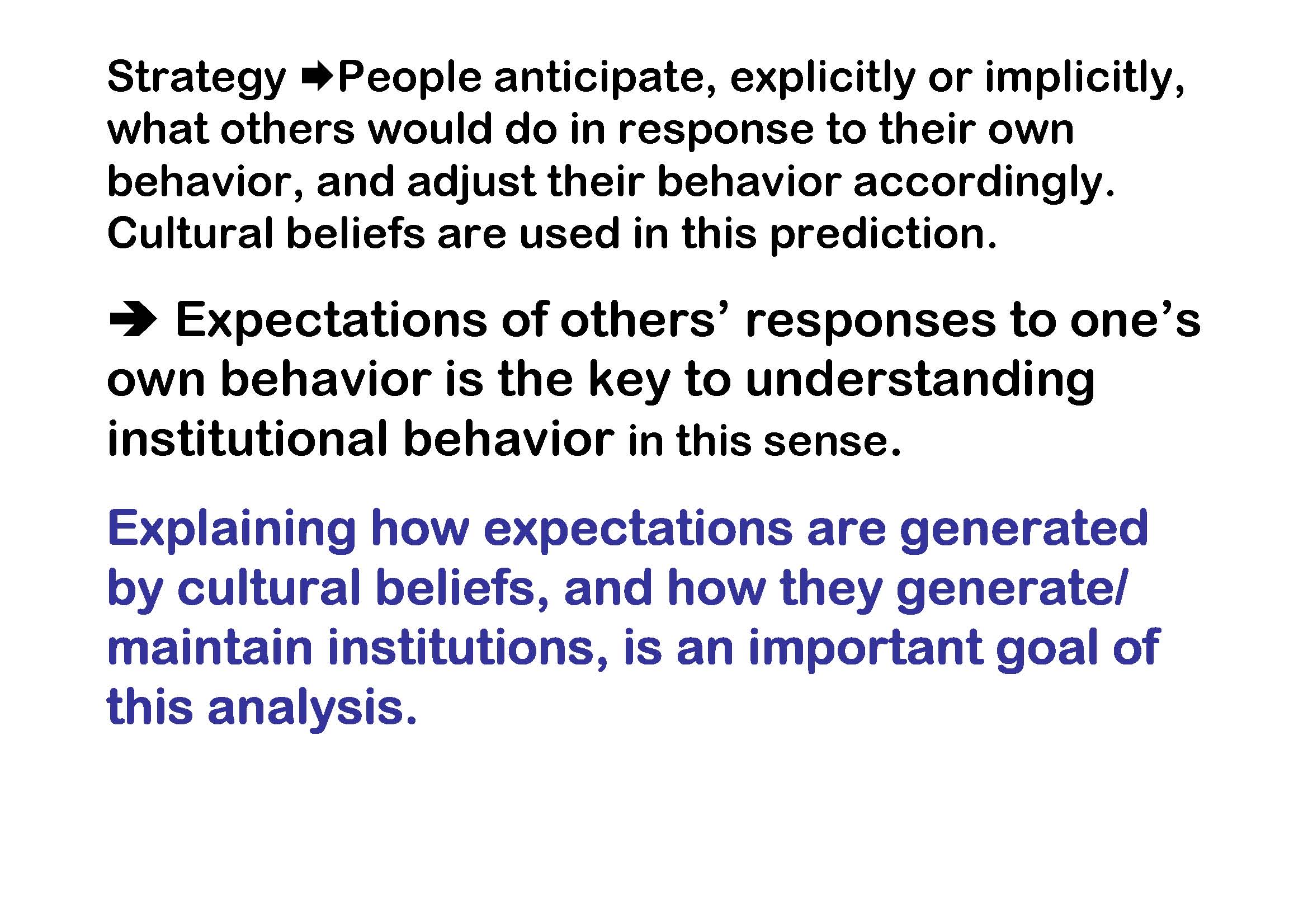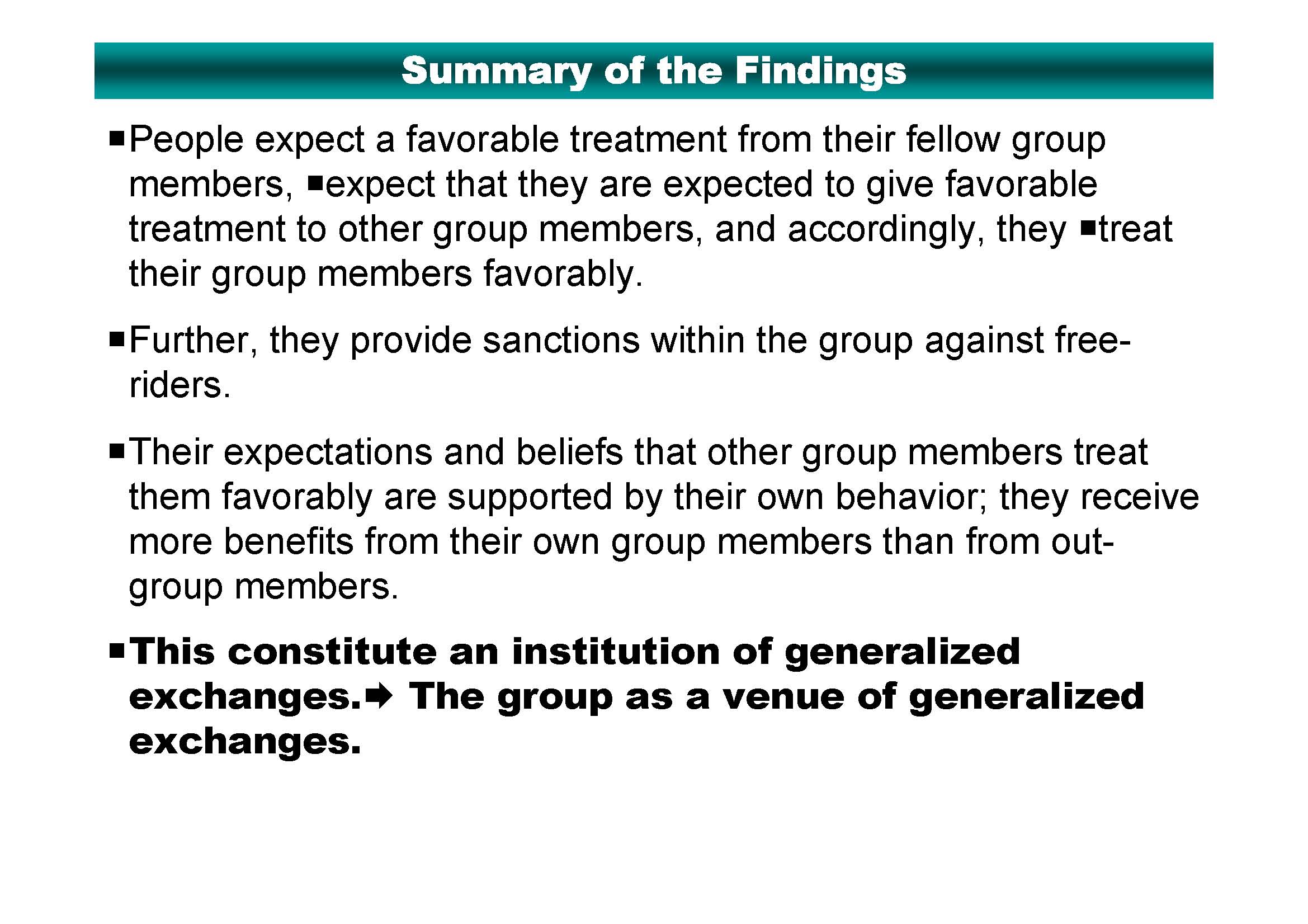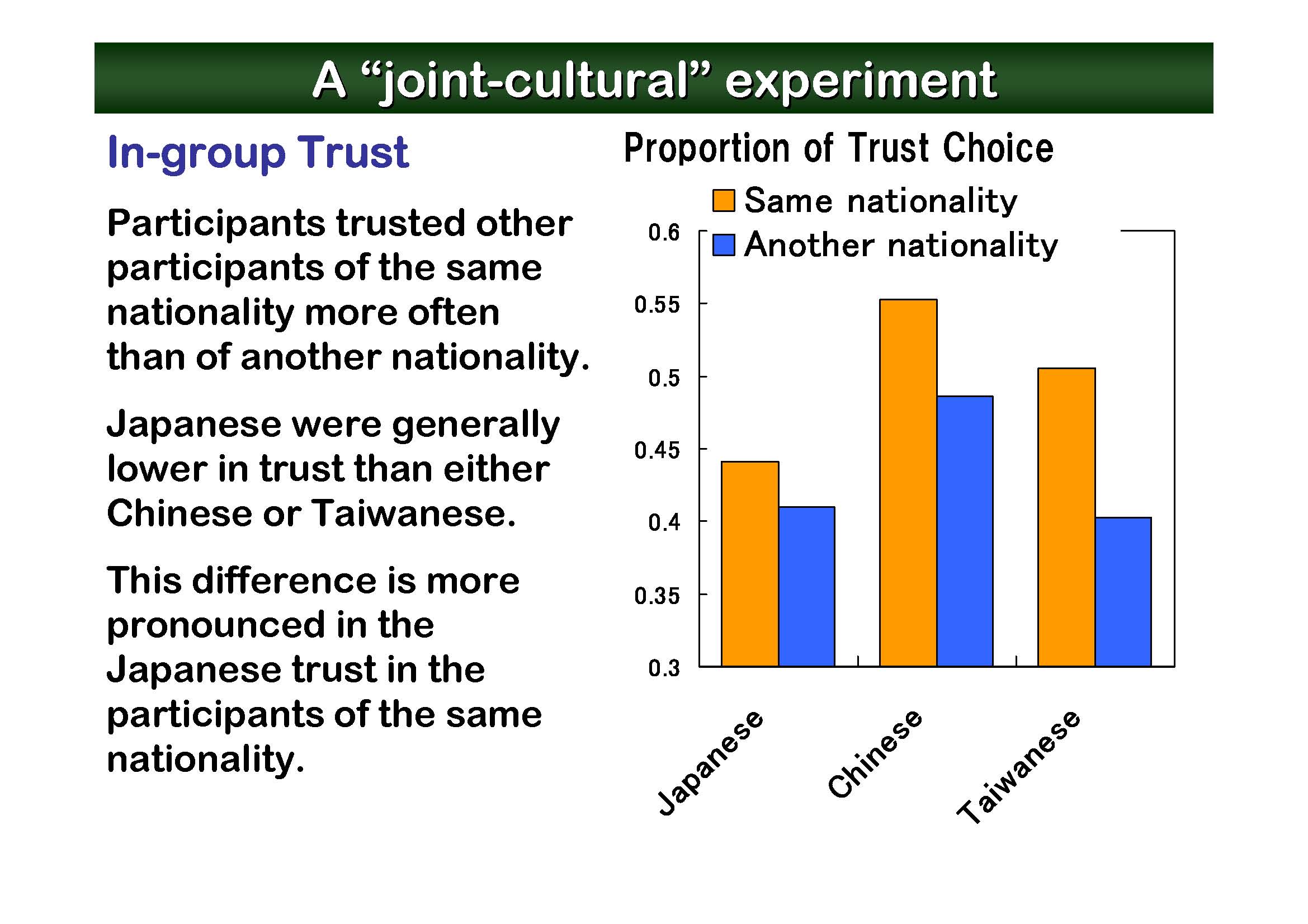



Toshio Yamagishi
(Hokkaido University)
Culture and institutions




Cultural psychologists argue that preferences shared by a majority of people in a culture come to constitute social norms for that culture, and that social norms in a culture are internalized as preferences (Kim & Markus, 1999). I argue that this process of mutual constitution is not simply a matter of the aggregation of individual preference into social norms and internalization of social norms by individuals; it is mediated by social institutions. There are two important parts of this argument. First, a social institution, of which social norms are a part, is not simply an aggregation of individual preferences. Rather, a social institution is a self-sustaining system of preferences and beliefs. What distinguishes a social institution from a simple aggregation of preferences is the existence of equilibrium state. Second, a social institution produces social adaptation tasks unique to that institution. Individuals who are endowed with a particular psychological "tool" to solve the "institution-specific" adaptation tasks can outperform others who are not endowed with such a tool. As a result, such psychological tools often come to be shared by individuals who face a particular social institution. I present results of several experiments that support hypotheses derived from this approach.